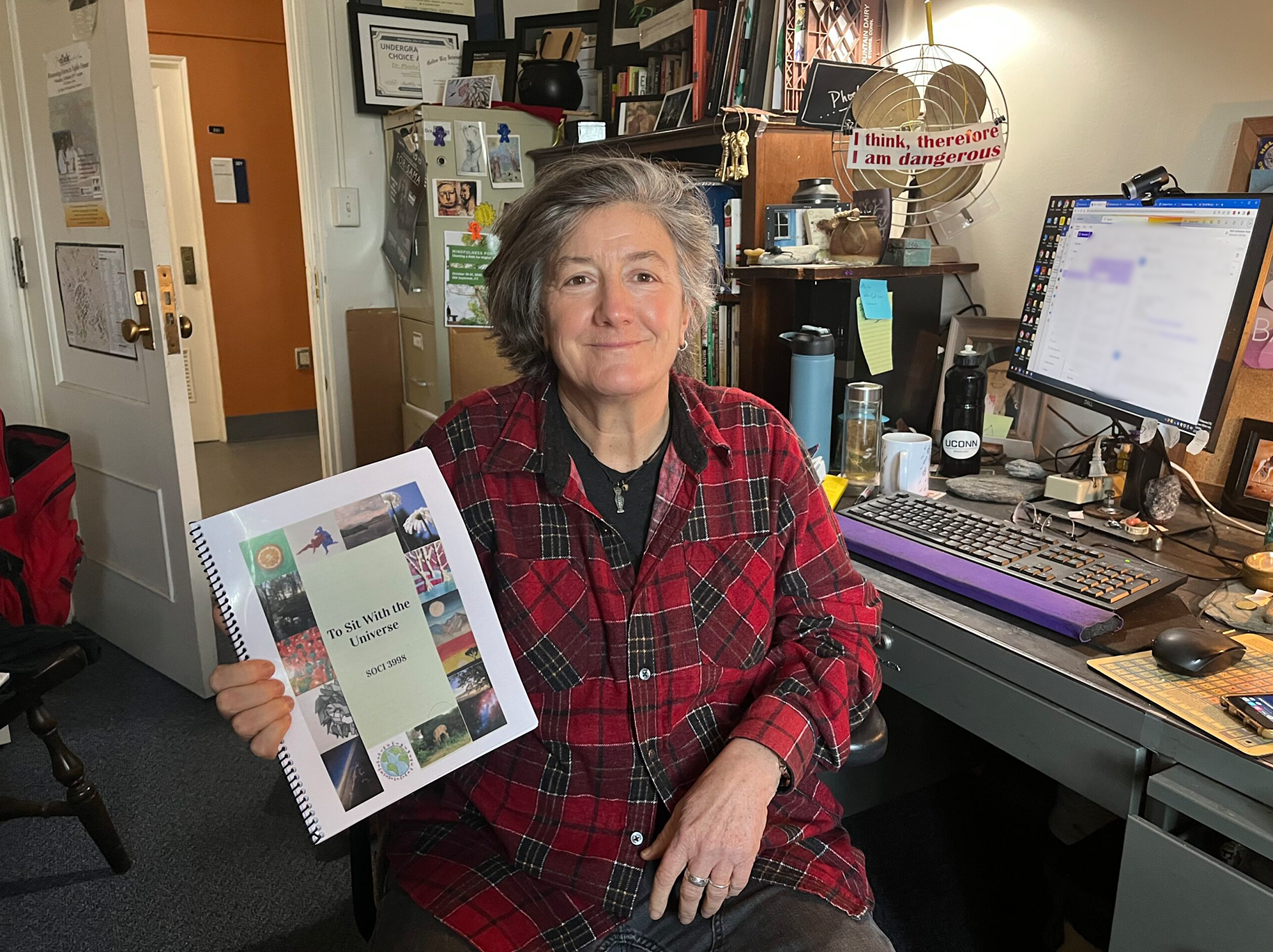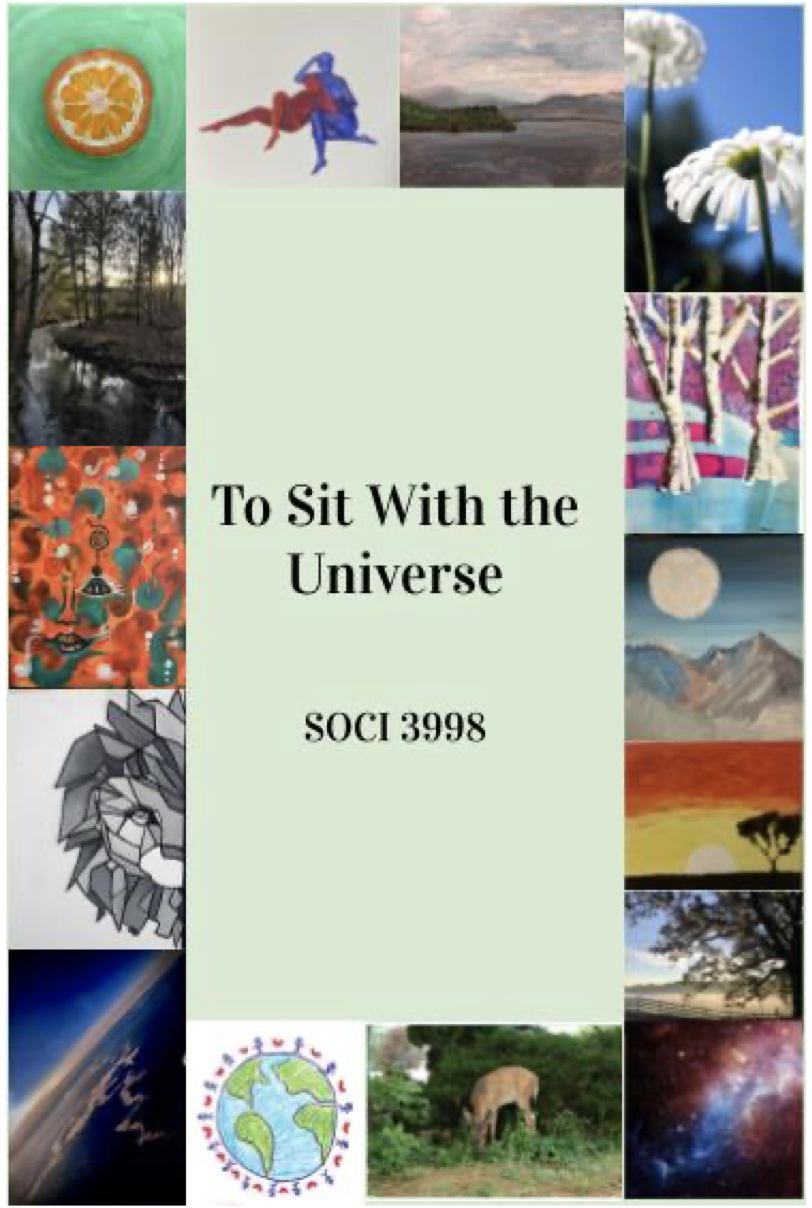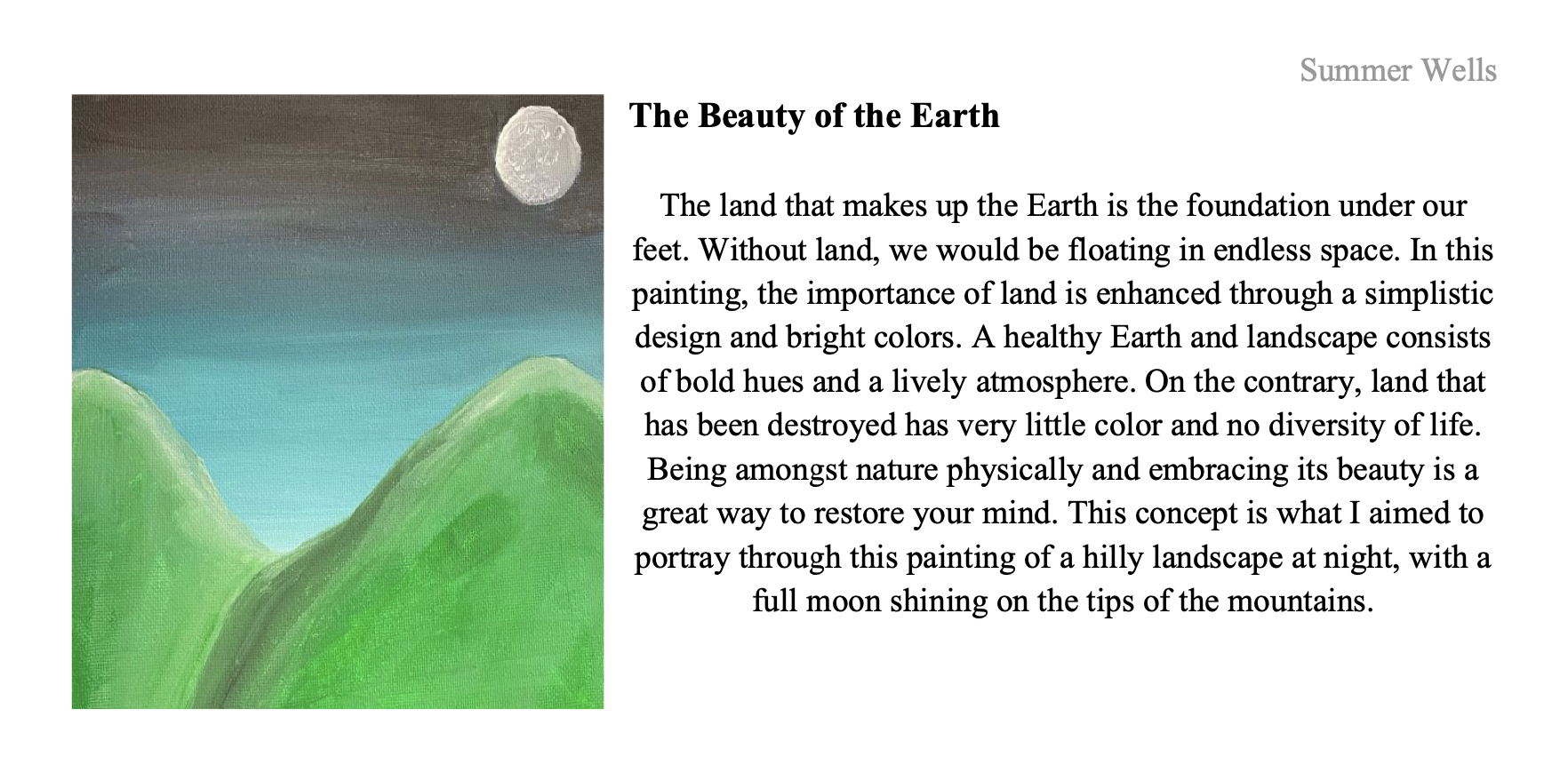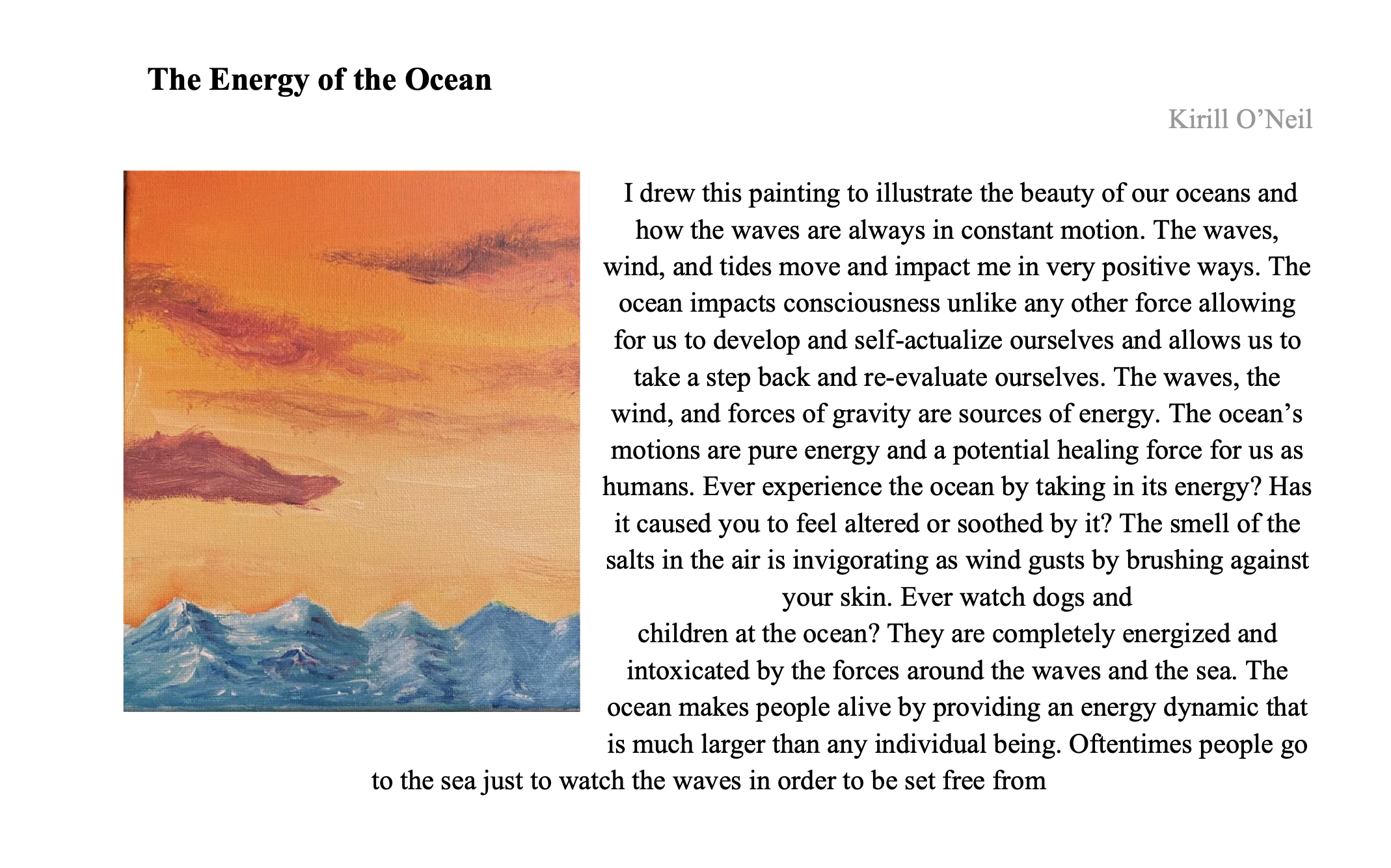
Amanda McCard

Amanda McCard
Rebelling against a society that’s too dismissive of nature, a University of Connecticut sociology class crafted a book that has been added to the school’s bank of resources on connecting with the environment.
The book, “To Sit With the Universe,” is the culmination of a semester of learning in a class taught in the fall of 2021 by UConn sociology professor Phoebe Godfrey, called Human Societies and the Living Earth.

The book is now published digitally at UConn through NatureRx, a program that encourages people to spend more time outdoors to improve their physical and mental health.
Its 68 pages contain student-made entries that guide readers through activities, meditations and creative projects that promote slowing down and rethinking your relationship with the world.
Godfrey explained that today’s world can be discouraging for lovers of nature because of how exploitative people are of the environment. Consumerism dictates that natural, often living resources are destroyed to produce unnecessary material goods.
“We kill life to make things that are dead,” Godfrey said in an interview. “If you love the environment and you love life, it’s heartbreaking.”
Many of her students shared in this disheartenment. Godfrey explained that it’s easy to feel helpless as part of such a destructive society, but that her students took this project as a chance to make a small change. Each entry they wrote in the book served to encourage a shift in audiences’ attitudes toward nature.
“For the students, it was very healing,” Godfrey said.
Rory Monaco is a UConn student that took the course and contributed entries including a meditation activity, an exercise in observing nature and a poem to the book. She said that she appreciated the unconventional manner of the class and the project.
“I think in some ways the purpose is to promote non-traditional forms of education,” she said in a text.
The decision to create this project was student-led, as Godfrey let her students decide the direction of their final assignment.
“The students chose that they wanted to share what they had learned with the community,” Godfrey said.
“We didn’t decide to create the book until we were brainstorming, as a class, final project ideas and decided through consensus to create the book,” Monaco said.

Cynthia Jones, the founder of NatureRx at UConn and a biology professor, explained that “To Sit With the Universe” is so impactful because it encourages mindfulness in nature.
“Mindfulness is like seeing a flower and smelling it, or feeling the bark of a tree,” Jones said.
This idea of mindfulness is encompassed in the philosophy of NatureRx, which promotes the health benefits of spending time in nature.
“Spending time engaged with nature is beneficial for a whole wide range of reasons,” Jones said.
These reasons include improved immune system function and increased levels of serotonin, a chemical that impacts mood and other things in the body, Jones said. There are a variety of explanations as to why nature is so beneficial, including microorganisms in soil, compounds produced by plants, and humans’ innate connection to the natural world programmed through millennia of evolution into our DNA.
The theory that humans share an innate connection with nature is called biophilia. The term comes from a 1993 study conducted by Stephen Kellert and Edward Wilson which hypothesized that because earlier humans depended on their connections with the environment to survive, a need to connect with nature remains innate. An International Journal of Wellbeing article says that studies have found that humans across cultures and of diverse ages react more positively to nature scenes than they do to other visual cues, suggesting that people are born with, not taught, a love for nature.

“There’s a variety of hypotheses and methods, and it’s probably a whole bunch of things,” Jones said.
It may be difficult to confirm any one theory explaining it, but the consensus is that nature is good for people. According to the American Psychological Association, “spending time in nature is linked to both cognitive benefits and improvements in mood, mental health and emotional well-being.”
Jones explained that a person’s connection with nature fluctuates throughout a lifetime, typically dropping off in high school then starting to climb in college. This theory is supported by a study by Joelene Hughes, published in Frontiers in Ecology and the Environment, that polled people of different ages across the UK about their connection to nature. Jones concludes from the data that college students are an especially important demographic to reach with information about the health benefits of time in nature.
“I think it’s a really important time in people’s lives to influence them,” Jones said. “Look, just go outside for 10 minutes because it’ll make you feel better.”
Influencing people to think differently about nature is what “To Sit With the Universe” is all about. When the course ran for the second time last fall, Godfrey assigned passages of the book as homework. She hopes to teach the class again in the fall of 2024, and that it can eventually become a permanent course.
To read the full book, click here.